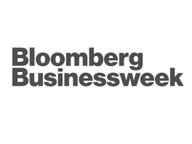Business and Policy Leader Events
—
Third Annual Faculty Excellence Dinner
—

As part of an annual tradition, NYU Stern faculty and guests gathered to celebrate the School’s community of scholars and to recognize excellence in research and scholarship, innovation, teaching and mentorship, and influence in business and policy.
Business and Policy Leader Events
—

As part of an annual tradition, NYU Stern faculty and guests gathered to celebrate the School’s community of scholars and to recognize excellence in research and scholarship, innovation, teaching and mentorship, and influence in business and policy.



















